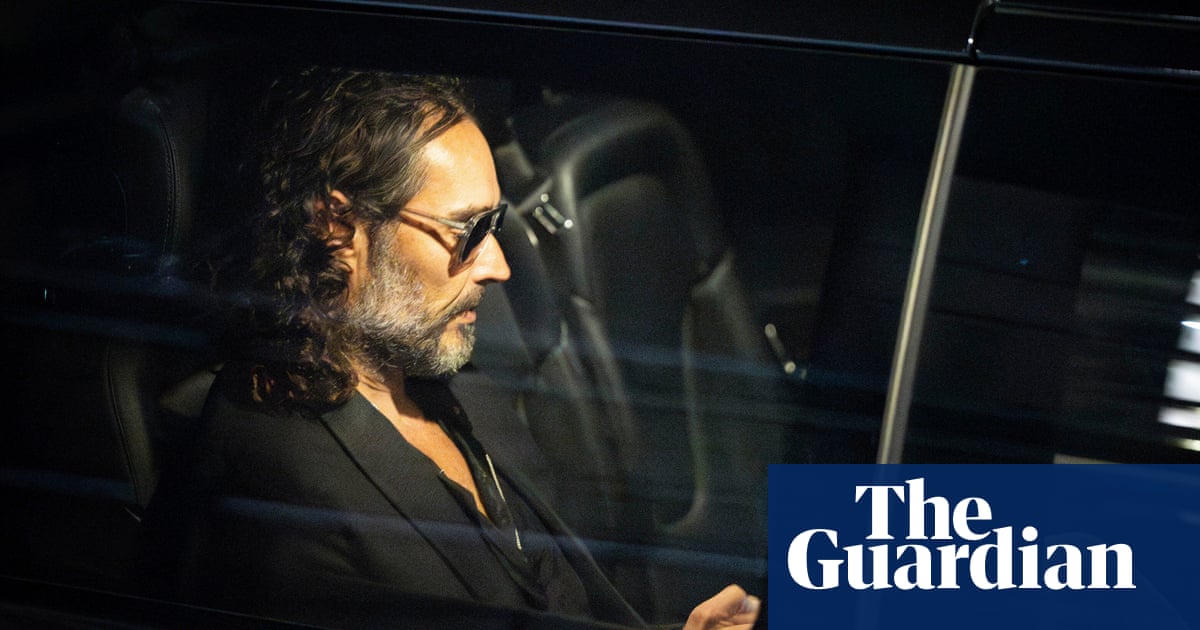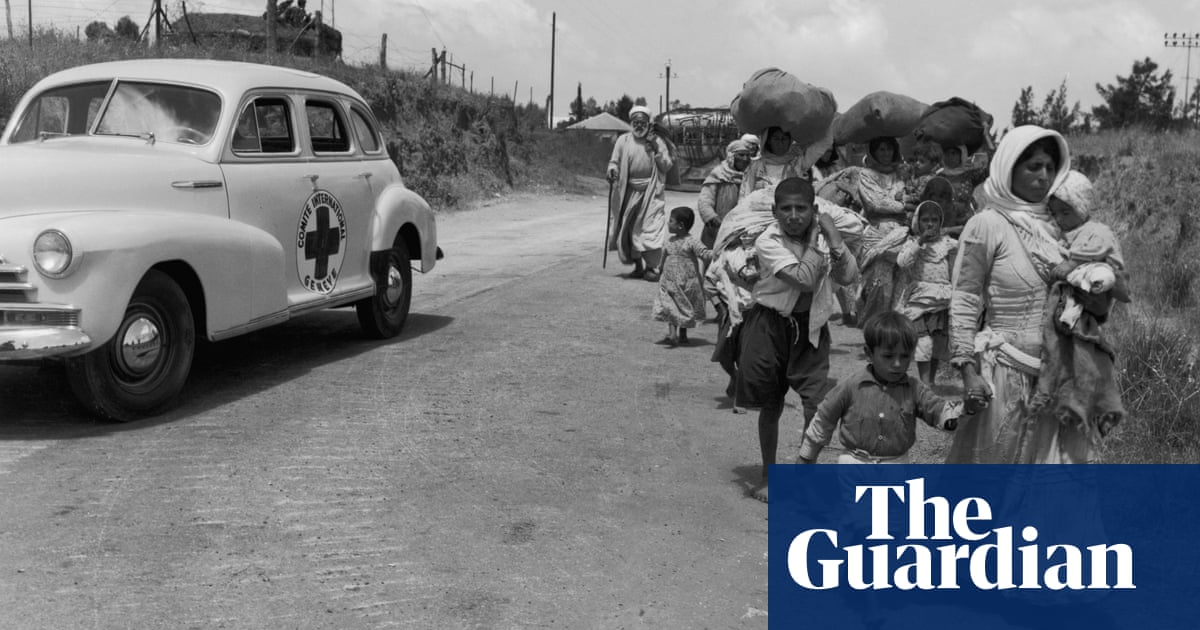
This week, singer Andrew Watts and I will make our fourth attempt to give the world premiere of Sir John Tavener’s La Noche Oscura. The most surprising part of this is not that three scheduled performances have been cancelled over the last 12 difficult months, but that the work is getting its first performance eight years after the death of the great composer at 69.
I was lucky enough to count John Tavener as a friend. He wrote several pieces for me. La Noche Oscura (a spiritual cantata), the last, was completed in July 2012, a year before his death, and is dedicated to his daughters Theodora and Sofia. It’s a deeply affecting piece with music full of depth, wonder and majesty. The words, by contrast, reflect despair and little hope, perhaps indicating John’s increasing frustration at his physical condition, facing up to the inevitability of leaving his family before he was ready.
My own relationship with John began one-sidedly after I first heard The Protecting Veil. It became a crucial lifeline at a hugely challenging time in my life, after the suicide of my mother in 1992. It was among a very small group of pieces I could bear to listen to after the initial blinding, poleaxing, numbing shock, before those feelings gradually faded into something more permanent. I wrote to him with thanks, not expecting to hear back, but already having in my mind a determination that one day he would write for me.
That moment came four years later. Tavener wrote, at the request of the conductor Richard Hickox in 1996, a work for me and countertenor Michael Chance. Hickox had already been closely associated with John’s music for many years, and when I played at the late conductor’s wedding he perhaps rather rashly asked me how he could ever thank me. I said by asking Tavener to write a piece for me!
Three months later, out of the blue, The Hidden Face dropped through my letterbox. It was stratospherically high and used pitch inflections from Byzantine chant, and yet needed to be the stillest, most profound meditation I have ever tried to create in sound. That piece was premiered at the 1998 Proms and had many successful performances and has been recorded by Harmonia Mundi. Andrew Watts and I performed it at John’s memorial service at Westminster Abbey in June 2014.
The eventual friendship between John and myself was different to those with other musicians he wrote for, such as cellist Steven Isserlis and soprano Patricia Rozario. John was always suggesting things for these great musicians to read and leading them to look in certain philosophical directions. With me, he wasn’t like that for some reason – although I would have been open to it – but there was a deep trust and easy conviviality between us.
In 2003, Tavener wrote Shanti-Kathleen in memory of the poet Kathleen Raine, and Patricia Rozario and I performed it at Raine’s memorial service. It was on that day he and I had a chance to spend time together talking about quite mundane things such as concert clothes. I was wearing the kurta a lot at that time and John was fascinated to hear that I got them from little shops in Leicester and Luton, whereas he thought he should perhaps go to Savile Row for his. (I suspect he probably did visit Leicester when I told him what I paid for them!) That day I also got the chance to tell him about what The Protecting Veil had meant to me, and risked asking him whether he might now consider writing something substantial for me, a solo piece.
I had almost forgotten about my request when many months later his publisher called to ask if I could go and see John at his home in Dorset. Go at the first opportunity, she said, it was important. And so after an especially heavy after-party in Berlin where I had been conducting, and no sleep, I made my way there by plane, train and automobile. At his house, me in a slight daze, we sat and talked for hours about religion, about Mozart – John mentioned that he conversed directly with him while in the bath – and Birtwistle – “Is he spiritual do you think?” – with a glint in his eye. Then he took me into his exquisitely chaotic music room heaving in scores, icons, candles, pencils, cards, art, and he played the piano and sang, well … moaned … in his unique way while I sight-read through an eight-inch high pile of manuscript that he had written for me, dazzled by the quality of the music.
There were two substantial pieces there: Songs of the Sky and Kaleidoscopes. Kaleidoscopes was a major work for oboe, strings and temple bells; Songs of the Sky had come to him after the 2004 Indian Ocean tsunami and was dedicated to the victims of that tragedy. Unusually there was no commission in place for either work, no performance dates, only that unique music that had taken form.
Normally, in the UK, for a new composition to be written a commission needs to be secured at the outset. Few composers put pen to paper without knowing where their piece will be performed, and by whom. Money is needed to pay the composer for a start – this is how they make their living, and without a firm commission a work risks never being heard, and the complex ecosystem of composer, performer, promoter and audience is at risk.
Had it not been for the plucky Britten Sinfonia commissioning and premiering both of these works the following year they too might have languished unheard, unperformed for many years.
Commissioning musical works – even by our best known living composers – has become a labyrinthine nightmare in the UK, despite some wonderful institutions doing stalwart work. Currently, each time these hard-working organisations are perhaps belatedly awoken to a new, important and relevant societal failing (first, to the imbalance between men and women composers, and more recently to the imbalance involving Black, Asian and other ethnic groups), one cluster is supplanted for the next without any new support being found, leaving many senior composers simply without the chance to earn a living from writing, and leading to the danger of younger composers’ voices being lost. It’s a situation that leaves many of us potential commissioners paralysed as to where to turn when a composer wants to write for us.
The UK has more great living composers per square mile than any other country in the world; their lack of acknowledgment is a cultural scandal. These are “content creators”, on the most basic level, but the variety and quality of their music should be one of our most talked about cultural assets. Which leads us back to La Noche Oscura, written as it was without a commission or performance dates.
It’s only possible to programme it now through the generosity of the Tavener family and his estate who own the rights to all his work. Aldeburgh festival and Britten Pears Arts have worked with the family to get this performance to happen and I’m incredibly grateful that at least now his daughters will finally get to hear this awesome and exquisite music written for them in the last few months of their father’s life, music that seems to rail and plead against his illness and death, and against the near certainty of him being taken from them and from his life so prematurely.
The world premiere of La Noche Oscura featuring Nicholas Daniel, oboe, Andrew Watts, countertenor, and the Britten Sinfonia, conducted by Sian Edwards, is at Snape Maltings, Suffolk, on 25 June, at 3pm and 7pm.












